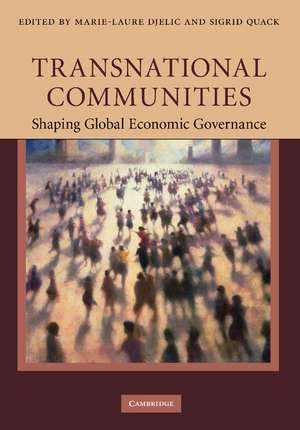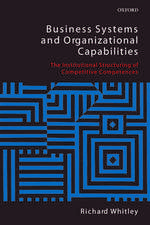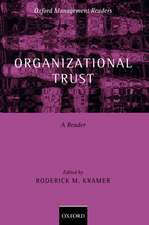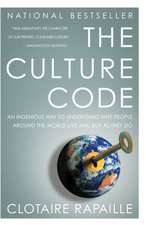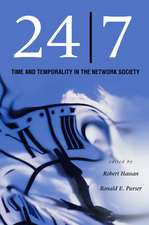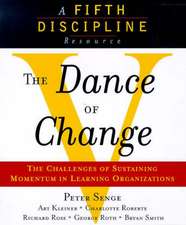Transnational Communities: Shaping Global Economic Governance
Editat de Marie-Laure Djelic, Sigrid Quacken Limba Engleză Paperback – 6 iun 2012
| Toate formatele și edițiile | Preț | Express |
|---|---|---|
| Paperback (1) | 386.25 lei 6-8 săpt. | |
| Cambridge University Press – 6 iun 2012 | 386.25 lei 6-8 săpt. | |
| Hardback (1) | 542.12 lei 6-8 săpt. | |
| Cambridge University Press – 19 mai 2010 | 542.12 lei 6-8 săpt. |
Preț: 386.25 lei
Nou
Puncte Express: 579
Preț estimativ în valută:
73.93€ • 80.33$ • 62.14£
73.93€ • 80.33$ • 62.14£
Carte tipărită la comandă
Livrare economică 21 aprilie-05 mai
Preluare comenzi: 021 569.72.76
Specificații
ISBN-13: 9781107406162
ISBN-10: 1107406161
Pagini: 446
Dimensiuni: 170 x 244 x 23 mm
Greutate: 0.7 kg
Editura: Cambridge University Press
Colecția Cambridge University Press
Locul publicării:New York, United States
ISBN-10: 1107406161
Pagini: 446
Dimensiuni: 170 x 244 x 23 mm
Greutate: 0.7 kg
Editura: Cambridge University Press
Colecția Cambridge University Press
Locul publicării:New York, United States
Cuprins
List of figures; List of tables; List of appendices; List of contributors; Preface; Part I. Introduction: 1. Transnational communities and governance Marie-Laure Djelic and Sigrid Quack; 2. Global structures: markets, organizations, networks - and communities? Renate Mayntz; Part II. Classical Communities with a Transnational Extension: 3. The multiple layers of a transnational 'imagined community': the notion and reality of the ethnic Chinese business community Heidi Dahles; 4. From cross-border exchange networks to transnational trading practices? The case of shuttle traders in Laleli, Istanbul Mine Eder and Özlem Öz; Part III. Professional Communities with a Transnational Extension: 5. Transnational boards and governance regimes: a Franco-British comparison Charles Harvey and Mairi Maclean; 6. Private equity in Japan: global financial markets and transnational communities Glenn Morgan and Izumi Kubo; 7. Formal organizing and transnational communities: evidence from global finance governance associations, 1879–2006 Asma A. Hussain and Marc J. Ventresca; 8. Promoting transnational professionalism: forays of the 'Big Firm' accounting community into France Carlos Ramirez; Part IV. Virtual Communities: 9. Gift-giving, transnational communities, and skill building in developing countries: the case of free/open source software Anca Metiu; 10. Epistemic communities and social movements: transnational dynamics in the case of Creative Commons Leonhard Dobusch and Sigrid Quack; Part V. Transnational Interest or Issue-Based Communities: 11. The transnational temperance community Mark Lawrence Schrad; 12. Industrial democracy in the European Community: trade unions as a defensive transnational community, 1968–88 Thomas Fetzer; 13. The making of a comprehensive transnational discourse community Dieter Plehwe; 14. Global warming, transnational communities and economic entrepreneurship: the case of carbon capture and storage (CCS) Åge Mariussen; 15. Communities of practice as cause and consequence of transnational governance: the evolution of social and environmental certification Tim Bartley and Shawna N. Smith; Part VI. Conclusion: 16. Transnational communities and their impact on the governance of business and economic activity Marie-Laure Djelic and Sigrid Quack; Index.
Recenzii
Review of the hardback: 'Djelic and Quack are to be warmly congratulated on drawing together a group of scholars to explore an understudied yet significant phenomenon - the emergence and evolution of transnational 'communities'. Harnessed by this common theme (the guiding hands of the editors are clearly present), the contributions are refreshingly wide-ranging and international in scope. This is an important work and should be widely read.' Royston Greenwood, University of Alberta School of Business, and University of Oxford
Review of the hardback: 'Is global governance possible at all? While all signs seem to point towards a conclusion that a centralized global political governance is both impossible and undesirable, the editors and chapter authors of Transnational Communities explore a fascinating alternative. Far from being local, communities now extend beyond national and organizational borders, thus constructing forms of economic governance that are hidden from scrutiny of scholars intent on studying formal structures. This innovative and informative volume will interest political scientists, sociologists, organization theorists and economists alike. Well written and well edited, it presents an array of specific issues, which are strictly subordinated to the main theme.' Barbara Czarniawska, University of Gothenburg
Review of the hardback: 'Djelic and Quack have assembled an outstanding volume on transnational communities and how they shape global economic governance. It will be the key point of reference in the field for some time to come.' David Held, London School of Economics and Political Science
Review of the hardback: 'Is global governance possible at all? While all signs seem to point towards a conclusion that a centralized global political governance is both impossible and undesirable, the editors and chapter authors of Transnational Communities explore a fascinating alternative. Far from being local, communities now extend beyond national and organizational borders, thus constructing forms of economic governance that are hidden from scrutiny of scholars intent on studying formal structures. This innovative and informative volume will interest political scientists, sociologists, organization theorists and economists alike. Well written and well edited, it presents an array of specific issues, which are strictly subordinated to the main theme.' Barbara Czarniawska, University of Gothenburg
Review of the hardback: 'Djelic and Quack have assembled an outstanding volume on transnational communities and how they shape global economic governance. It will be the key point of reference in the field for some time to come.' David Held, London School of Economics and Political Science
Descriere
An exploration of the role of transnational communities in relation to the governance of business and economic activity.
